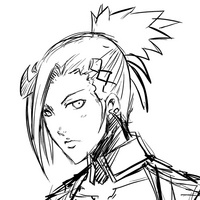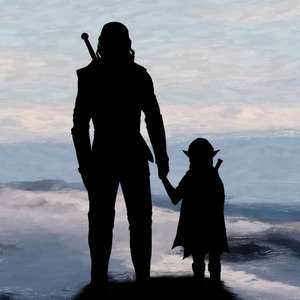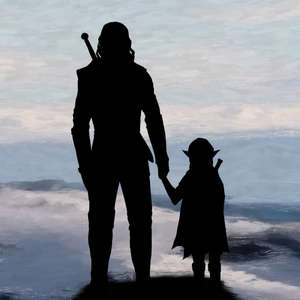When the gods of winter had next taken their leave, the child had grown half a hand taller, and though she spoke as rarely as Jaris, her sharpness of wit and skill with a blade had grown beyond her stature. One day, she brought Jaris another garland of frost-flowers, and said to him, “Here is another garland I have made for you, sire. I know it is little, but perhaps upon the next spring I will be able to hunt among the boulders so that you may rest, and I will learn to tan the hides so that I can make you a new cloak, for yours is terrible worn, though I mean no offense in saying so.”
Jaris felt a thing like pride, and put his hand upon the child’s head. “You will learn these things in time, Mara, for you are a clever child by any measure. For now, this pretty garland is enough. I think, though, that you should not call me ‘sire’ any more, for it is respectful but seems not familiar enough.”
“What then shall I call you?”
“Simply Jaris shall suffice, for that is the name my father gave me.”
The child pondered this, and did not like it. “Might I call you father?”
This suggestion pained Jaris deeply. Not, as one hearing the tale might think, because his own kin was no more, or even because she was Hob and he was Man, but because he knew that it was he who had taken her blood family from her, a truth she had no ken of. “I am not your father,” said he, “even if I vow to protect you as one.”
“I know this, but even so, I remember my own father only slightly, and he is gone, yet I have you to look o’er me, and you are the only family I have.”
At this, Jaris could not resist the pull of his heart, and knelt so that she might place the garland about his neck. “Very well, then, for now, you may call me what you wish. But a day will come when I will tell you in full who I was and am, and know that you will regret too much familiarity.”
The child reached out with her sallow, clawed hands and placed the garland about his neck, and said, “Thank you, father.”












Comments (2)
See all